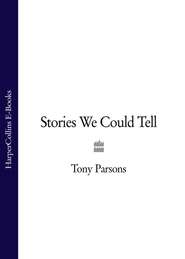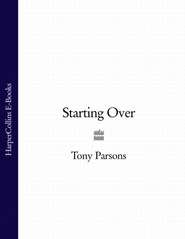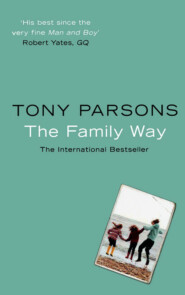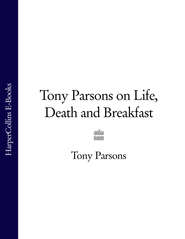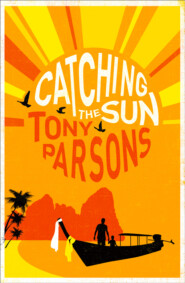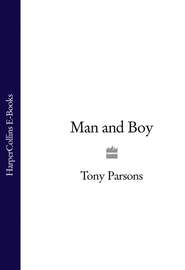По всем вопросам обращайтесь на: info@litportal.ru
(©) 2003-2024.
✖
Departures: Seven Stories from Heathrow
Автор
Год написания книги
2019
Настройки чтения
Размер шрифта
Высота строк
Поля
‘They make it sound irrational,’ she said. ‘You make it sound irrational. All those hundreds of people locked inside a metal tube above the clouds. Maybe it’s you that’s crazy for not being . . . a little bit . . . worried? You ever think about that, Nick? Maybe it’s you and the rest of the flying glee club. Maybe I’m the sane one.’
She turned back to the window. There were a few of them up there now – their west London home was directly under a flight path – moving like deep black wounds in the sky. So slowly, so slowly. As if they could fall at any moment. She wiped her hands on her jeans, and it all came back.
The noises that sounded like the end of everything. The engines starting – that screaming sound that froze the blood. The suicidal dash to the end of the runway. The mad sensation of leaving solid ground. Rising, rising, like the nausea in the pit of your stomach. And then – perhaps worst of all – the sound of the undercarriage being lifted, as final as the lid on your coffin slamming shut and the nails being banged in. That was the moment you knew there was no going back.
You were trapped.
Then Nick was by her side, Sky in his arms. The girl slipped from the arms of her father to her mother, the way monkeys and small children do.
‘I just want to help,’ Nick said.
She put her free arm around him.
‘I know you do,’ she said. ‘But the thing is, Nick – I really don’t have a fear of flying.’
He looked uncertain. ‘You don’t?’
‘It’s just that I have a problem with take-off and landing,’ she said. Then paused. ‘And the bit in the middle.’
‘One of these courses can help,’ he said. ‘I believe it. There are lots of people who feel like you, Zoe. You’re right – it’s not a mad way to feel. On these courses, pilots talk to you. They explain the sounds. I know you don’t like the sounds . . .’
She suddenly lit up.
‘Or we could do something else,’ she said excitedly.
‘Yes?’
‘Stay home,’ she said, jiggling the child in her arms, making her laugh, and smiling herself now. ‘We could just stay home, Nick. Not go.’
Nick stared at his wife for a long moment.
And then he shook his head.
‘But we have to go,’ he said.
The green plane burned.
The engine burned. The cockpit burned. The green plane burned in the galley and it burned in the undercarriage and it burned in the brakes.
The green plane burned more wildly as the firefighters jumped from the two fire engines – rigs, they called them, and they did not look like anyone’s idea of a fire engine. These fire engines, these rigs, looked more solid, more tank-like, and more ready for a war than a normal fire engine. They were built to go in a straight line. From one of two fire stations at either end of Heathrow to an aircraft in trouble. Like the green plane.
An oil spill spread quickly under the two sawn-off wings of the green plane, and that burned too, a sheet of fire that swiftly rose to a spectacular wall of flame, trailing black smoke as the four firefighters advanced towards it, crouching before the terrible heat, tasting it in the back of their throats, the hoses in their hands looking like small, ineffectual weapons, plastic swords against a dragon, until the moment they began covering the fire with foam, starving it of the air that it craved, choking it, killing it.
In one of the two rigs that faced the nose of the green plane, unloading their blankets of foam on top of the fire, Fire Officer Mike Truman watched the proceedings with quiet satisfaction.
Mike had watched Heathrow’s green plane burn hundreds of times. It was a strange-looking hybrid, made up of many aircraft. The tail of a DC-10. The fuselage of a Jumbo. Bits and pieces all combined into one so that the Heathrow Airport fire service could be prepared for any fire on any aircraft at any time.
Burning the green plane was a drill. Aircraft use Jet A-1 aviation fuel, a hydrocarbon fuel, whereas the green plane’s fires were gas. And aircraft are constructed of sheet aluminium, or more recently lightweight plastics reinforced with man-made mineral fibres known as composites, and the green plane was built of steel. It was just a drill. But there were twenty-six different scenarios on the green plane – twenty-six different ways for it to burn. So it was a drill that prepared the firefighters of Heathrow for anything.
When the green plane had arrived at the airport at the end of the last century, the same year as Mike, it had been as immaculate as a brand-spanking new car fresh off the assembly line. The green had shone in those days, like a pair of Robin Hood’s freshly washed tights.
Now, after the countless fires that Mike and his firefighters had started, the green plane was definitely showing its age. There were scars. There was wear and tear. It looked a bit rough. Just like me, Mike thought, grinning to himself.
Then he looked at the sky and frowned.
A big, blue cloudless sky hung above Heathrow. It was a beautiful day, he reflected with distaste. And that, thought Mike Truman, was the only thing that stopped this being a perfect drill.
He liked to see the green plane burn when the weather was filthy. He liked it when the light was bad, and the rigs sprayed rain or slush from their wheels as they raced to an incident.
An aircraft, he always reminded his men, contains enough fuel to fill five oil tankers. Imagine – just imagine, he would tell them – what that lot looks like when it is on fire. An aircraft is an unexploded bomb with five hundred people sitting inside it. And our job is to keep them all safe from harm.
So you didn’t want good weather when you burned the green plane, Mike thought. You wanted one of those rubbish days. Because it might be a plane returning to the airport shortly after take-off, stuffed full of Jet A-1. Because it might be an aircraft with ice in the fuel tanks and its engine gone. Because it might have had a heavy landing and burst ten tyres on its undercarriage, or twenty. Because it could be on fire in one of twenty-six places. And because you had to be ready for anything.
Zoe, Nick and Sky came through security and went to the lounge.
There was a small play area for children. Sky busied herself banging some plastic bricks together while Nick examined the baggage tags on their boarding cards, and checked the passports, and consulted the departure screen for their gate number. And then did it all again.
Zoe swallowed hard. It was happening. It was really happening.
Beyond the high glass windows of the lounge, planes as big as ocean liners queued on the runway: Jumbos and 777s and Airbus 380s all waiting their turn to hurtle from the ground.
‘I’ll be right back,’ Zoe said, and caught the look of alarm on Nick’s face as she turned away and walked out of the lounge.
Near the door there were travellers who had just passed through security. They were collecting their bags, putting their belts on, stuffing keys and coins and phones back in their pockets, slipping laptops into travel bags, reclaiming their dignity and their shoes. Beyond the metal detectors and the security guards there were more people waiting patiently. And beyond a distant wall, Zoe knew, even though she couldn’t see her, there was the lady who had checked their passports and boarding cards and told Sky that she was adorable, just adorable.
The traffic is all one way, Zoe thought.
The traffic was all heading towards getting on those planes, as surely as every life heads towards a grave. There was no way out. No escape.
Zoe went to the toilet, aware that her breath was getting shorter.
Closing the door of the stall behind her, she closed the lid of the toilet, sat down and pulled a pack of cigarettes out of her bag. She hadn’t smoked for years, and was surprised to see how alarmist the health warnings had become. DIE, DIE, DIE, it said on the side of the packet. YOU ARE DEFINITELY GOING TO DIE. Or perhaps she was just imagining it.
She put one in her mouth, wondering what she should do next.
She struck a match.
She lit the cigarette.
Then Zoe puffed on it nervously, trying to ignore the wave of nausea as she thought how much she hated smoking.
Do I have to go? she asked herself. Do I really have to go? Even now, can they make me go?
If I explain . . .
And then the smoke alarm went off.
‘Go,’ Mike said, feeling his blood pump as the station’s tannoy reported an emergency.






